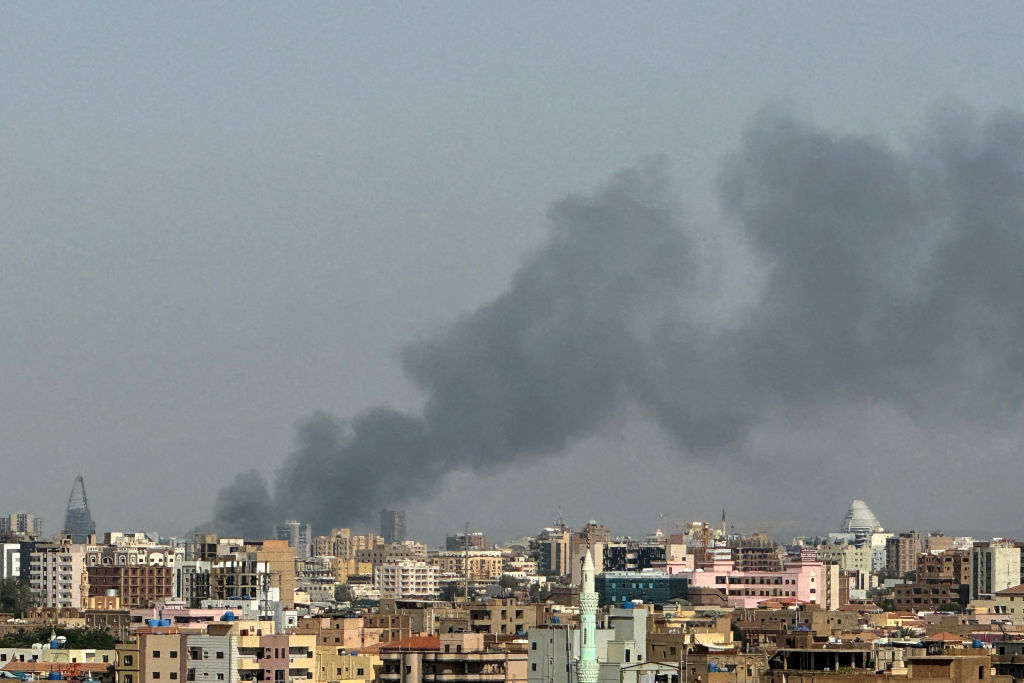More than 700 million people live in the continent’s urban areas. That number is expected to double by 2050, when the number of African cities with populations of at least 1 million is expected to reach 159, up from 60 currently.
Exploding urban populations carry critical security challenges as large numbers of younger, often underemployed people compete for limited resources. This can lead to a rise in criminal gangs and terrorist organizations, some of which have already plotted attacks on major cities.
According to the Africa Center for Security Studies, 587 of 4,930 African cities recorded fatalities linked to organized armed violence last year. That number has steadily risen in recent years, “indicating that Africa’s urban areas are progressively becoming a target in the continent’s civil wars or entrenched insurgencies,” ACSS researchers wrote. This is evident in Sudan, where civil war has raged for more than two years, and eastern Democratic Republic of the Congo, where the M23 terror group has wreaked havoc since 2013.
Analysts say fundamental shifts in approaches to security in African cities are necessary. More than 40% of people living in urban areas report feeling unsafe walking in their neighborhoods, according to the Africa Center. In response to rising crime and overworked police forces, community-based security groups known as vigilance committees have emerged as a form of collaborative policing in some cities.
“While not a substitute for police, these groups can help address rising urban crime,” Africa Center researchers wrote. “Since they know their neighborhoods, these groups can act as go-betweens for overstretched local police and citizens.”
In Côte d’Ivoire, violent youth gangs, known locally as “microbes,” emerged after a disputed election in 2010 and wreaked havoc in urban areas throughout the decade. In Abidjan, the capital, vigilance committees began working toconnect community members to police forces, local authorities and alleged criminals.
“The most effective vigilance committees understand that coercive techniques and violent confrontations with juvenile gangs exacerbate hostilities while failing to solve fundamental community issues,” Katha Ray, a master’s degree in International Affairs candidate at Columbia, wrote for the Yale Journal of International Affairs.
In the Abdijan commune of Abobo, vigilance committees are generally perceived as having improved the security situation and have become key community stakeholders for local security, according to the Africa Center. However, urban crime in Abdijan is unresolved as criminal gangs have simply left Abobo for other parts of Abdijan.
Vigilance committees do not offer fail-safe security options. Some police stations in Abobo have used ethics advisory boards to manage them, as some committees were accused of committing human rights abuses as they grew. Some police departments also used community policing programs to supervise them. However, occasional abuses persisted even with monitoring mechanisms in place, according to the Africa Center.
In Cameroon, some vigilance committee members have allegedly provided operational and financial support to Boko Haram. They reportedly give information on Army positions and personnel, food reserves and shops and cattle to be looted, according to the Institute for Security Studies. They also are accused of allowing Boko Haram members to enter the country for a fee.
In managing the security challenges of rampant urbanization, authorities should avoid treating entire neighborhoods or populations as security threats, the Africa Center argued. Approaches such as forced evictions and police crackdowns have historically deepened mistrust in rapidly-growing urban areas.
“Instead, local authorities must work to understand these communities, recognize their role in urban resilience and vitality, and integrate them more fully into the city’s economic and social systems,” the Africa Center wrote.
Security experts argue that it is time to be proactive and anticipate future security challenges posed by megacities.
“Security agencies must take responsibility for this urbanisation challenge,” wrote Adewumi Badiora of the African Cities Research Consortium. “They need to build a community of interest, focusing on large cities, and formulate new strategic, operational and tactical approaches.”

